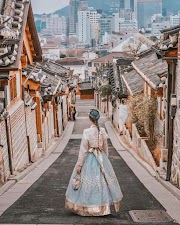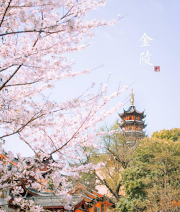China is a fascinating country, with centuries of rich history and culture. But it can be quite the culture shock on your first trip! Sometime during your visit, you’ll have to deal with smog, chopsticks, and government bureaucracy. Just stay informed and be prepared, and you’ll have a stress-free vacation!
Plan in Advance for a Visa
China requires visitors from most countries to have an entry visa. It’s best to prepare your application at least
two months prior to your trip. Americans must submit an application, a $130 fee, your passport, and your flight
itinerary to the nearest embassy or Consulate General.
It’s best to go through a travel agency or visa service that can
guarantee prompt delivery.
Focus your itinerary
China is massive. Really, it's
unbelievably large. It contains the world's highest mountains, some of the
world's largest deserts, remote jungles, seemingly endless grasslands, and, of
course, many of the world's largest cities. You would need months and months of
travelling to even begin to do it justice. So, rather than skimming the surface
of the whole country on your first trip, choose one region, or even just one province,
and explore it properly.
Here's some destination
recommendations:
Sichuan: One province; three regions. Stay in the centre or
the south for steamy bamboo forests and cute Ming-Dynasty villages. Head north
for stunning lakes set among alpine-esque mountain scenery. Venture west for
remote Tibetan-plateau grasslands.
Guangxi: Picture-perfect rice terraces and other-worldly
karst peaks dominate a lush, almost jungle-like landscape which is perfect for
hiking, cycling and river trips.
Beijing: Don't just fly here, stay here. Beijing packs in
more world-class sites than many whole countries are able to offer: The Great Wall, Tiananmen Square, the Forbidden City, the Summer Palace, ancient hutong alleyways, majestic
imperial parks...the list goes on and on.
Advice given by Daniel McCrohan
 |
| Chengdu Jiuyan Bridge Image by@Wudao |
 |
| Yangshuo, Guangxi Image by@traveljoys |
 |
| Temple of Heaven, Beijing Image by@cz_capture |
Check
the weather
At any time of the year there are places in
China that enjoy ideal weather for travel, but almost nowhere is
weather-perfect all year round. So to ensure your first trip to China doesn't
become a wind-beaten blowout, an energy-sapping sun-scorcher or just a damp
squib, get on top of where's hot and where's not in the month you're planning
to travel. Generally speaking spring and autumn are the most comfortable
seasons, although not in all provinces, and in many parts of China spring and autumn
are no more than a few weeks long. For starters, check out this China weather
rundown.
Need help? Find a high school student
The array of Mandarin
dialects and variations across China can make communication difficult even for
native Mandarin speakers. But help is always at hand: those under 25 years old
are most likely to speak both standard Mandarin and English.
Students who have studied
English in books for years, but have had little contact with native English
speakers, may more readily understand written questions.
Try Wechat or Alipay to pay
The largest benefit from paying with payment apps such as Alipay and WeChat is
convenience. At your typical hole-in-the-wall restaurant, coffee shop and
convenience store, paying for items is as easy as scanning a QR code in the
store (if you’re not sure what a QR code is, it looks like this).
As recently as 5 years ago, everybody had to make sure they always had
cash on them to pay for things. Now, a wallet isn’t even necessary to
carry as long as you have your phone.
You can also use Alipay and WeChat to pay items for sale in apps that
lack traditional payment functionalities. For example, with Ele.me or Meituan
you can order takeout at local restaurants and pay using Alipay or WeChat.
In addition to standard transactions, these mobile payment apps have
taken the convenience of mobile payment to a higher level by allowing you to
pay for bills like cellphone service and Internet with the app. Depending on
your area and provider, you may even be able to pay for utilities like electricity
and water too.
Lastly, for foreigners who cannot speak Chinese too well, using mobile
payments can make your life in China much easier, allowing you to purchase
things despite any language barrier. While some apps are only in Chinese, after
having someone walk you through how to use them you will be able to make
purchases on your own.
Try High-speed Rail China
China’s rail network is a fast-paced wonder that makes
exploring this huge country – including Beijing, Shanghai and Shenzhen – much
easier.
It’s not just locals who can take advantage of the
vastly improved journey times that the network offers: tourists too can use
high-speed trains to visit more of China – and a whole lot faster. Many
high-speed rail journeys are, ultimately, quicker than flying.
Tickets can be booked on Ctrip and delivered to a hotel. They can also be picked up
from a station, though leave plenty of time for this, as queues can be long.
Tickets can also be bought directly at stations or at offices dotted around
cities. A passport is required to buy or pick up tickets, which are available
30 days in advance of travel. Trains get booked up quickly so it pays to be
organised.
Notable HSR lines in China include the Beijing–Guangzhou high-speed railway which at 2,298 km (1,428 mi) is the world's
longest HSR line in operation, the Beijing–Shanghai high-speed railway with the
world's fastest operating conventional train services and the Shanghai Maglev, the world's first high-speed commercial magnetic levitation line, whose trains run on non-conventional track and reach a
top speed of 430 km/h (267 mph).
Go to the Teahouse
Teahouse has been ranked as the public place for
drinking tea, relaxation and entertainment since ancient times, acting as a
vivid epitome of Chinese tea culture and Chinese people’s leisure lives.
Besides providing a place for drinking tea, Chinese teahouses constantly launch
new varieties in order to meet different needs of various people.
In winter,
tonics with the effectiveness of keeping bodies warm are added into the tea. In
summer, something with the effectiveness of driving away summer heat is added
in the tea. Besides, in summer, some cold drinks are also sold in teahouses,
such as sweet bean paste, cocoribe, stewed plum water and papaya juice. As for
tea sets, there are custom-made tea sets varying from different kinds of tea,
revealing the reach and long-standing culture of teahouses in China.
Explore More about Chinese Tea
Recommended teahouse:
Lockcha; G/F, The K.S. Lo Gallery, Hong Kong Park, 10 Cotton
Tree Drive, Admiralty.
(Open in Google Maps); +852 2801-7177
Laoshe Teahouse; Bldg. 3, Qianmenxi Main Street,
Xicheng District, Beijing 100051, China; Opening times: 9:00am-9:20pm
every day; Telephone: 010-63036830, 010-63021717
In Laoshe Teahouse you can deeply feel the old Beijing
traditional culture. Firstly, the decoration of the teahouse is in old Beijing
style, with ancient wooden furniture. Secondly, every day you can enjoy a
convergence of Peking opera, folk arts, acrobatics, magic, face-changing and
other local wonderful performances. One can also taste various types of tea,
fine court dessert and traditional Beijing snacks.
Try Traditional Chinese Medicine----An Ancient yet Completely Modern Healing System
Traditional Chinese medicine (TCM) is thousands
of years old and has changed little over the centuries. Its basic concept is
that a vital force of life, called Qi, surges through the body. Any
imbalance to Qi can cause disease and illness. This imbalance is most commonly
thought to be caused by an alteration in the opposite and complementary forces
that make up the Qi. These are called yin and yang.
Ancient Chinese believed that humans are microcosms of
the larger surrounding universe, and are interconnected with nature and subject
to its forces. Balance between health and disease is a key concept. TCM
treatment seeks to restore this balance through treatment specific to the
individual.
It is believed that to regain balance, you must
achieve the balance between the internal body organs and the external elements
of earth, fire, water, wood, and metal.
Want to unblock your qi? Hit up a Traditional
Chinese Medicine (TCM) clinic. Illness isn't an essential requirement -- TCM
doctors believe preventing disease is just as important as treating it.
"TCM is ingrained in Chinese
culture," says Canadian Leslie Bottrell, who is trained in both Western
and Traditional Chinese Medicine. "It permeates everyday life and so
empowers individuals to be responsible for their wellness by promoting disease
prevention."











6 Comments
Traditional Chinese medicine is magic! It cured my soreback which had lasted for years!!
ReplyDeleteYes! Happy to hear that you've recovered! It is very useful and have no side effect to our body.
DeleteMiami Used Cars
ReplyDeleteWe have more than 250 makes and models of quality used cars, trucks, vans and SUVs to choose from—all at great prices and backed by one of the industry's best used car warranties.. Read More here: places that rent cars to 18 year olds . best car rental under 25
ReplyDeletethis is really a good informative website i have ever every seen. i have got a lot of good knowledge from
this site and i am waiting for the next blog.
keep it up and give us good information
for more information Flight booking
unique travel tips
ReplyDeleteRead about the most beautiful churches in New York City and other beautiful religious buildings in NYC that you won't want to miss!
this is really a good informative website i have seen. i have got a lot of good knowledge from this site and i am waiting for the next blog.
ReplyDeletemeet and greet at Manchester